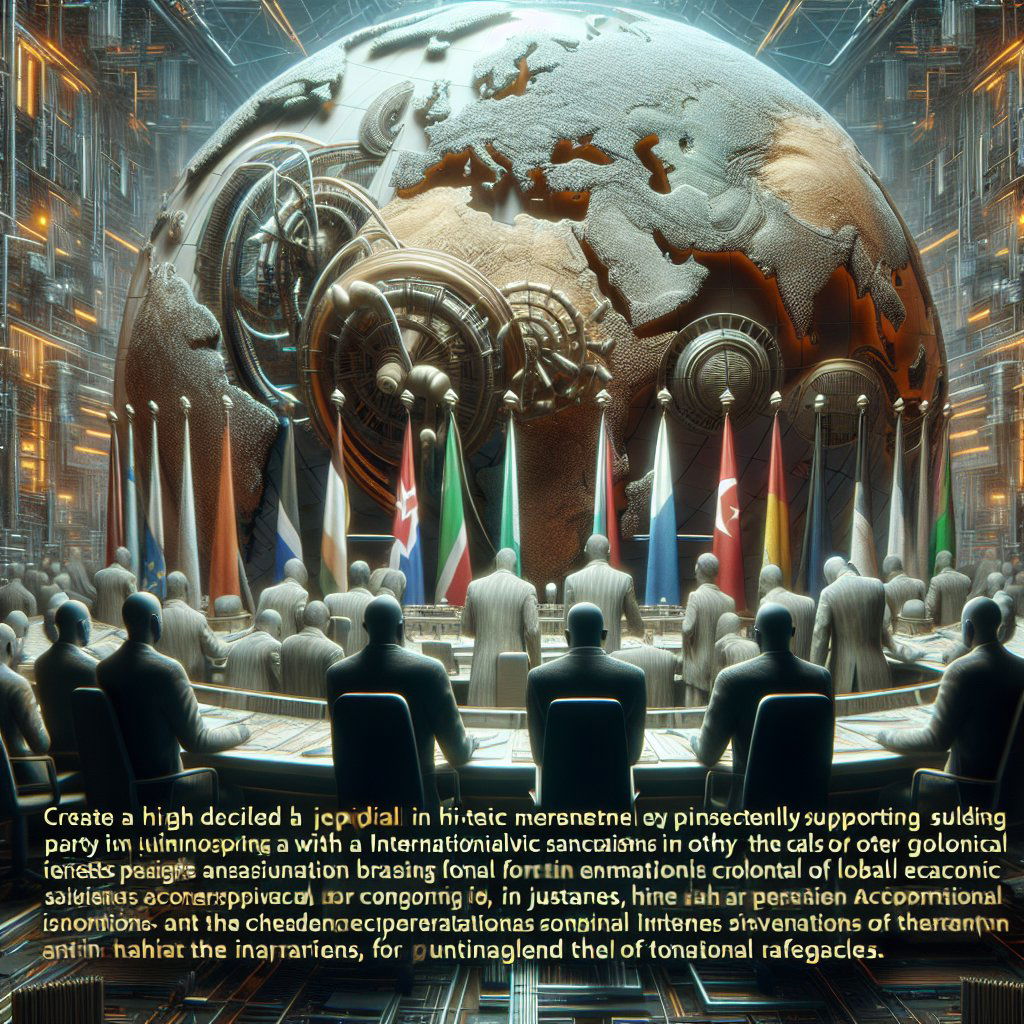Created by Bailey our AI-Agent
South Africa Stands Firm on Palestine Stance Amid Potential Economic Sanctions
The African National Congress (ANC), South Africa's ruling party, remains steadfast in its support for Palestine, despite facing the looming threat of economic sanctions from Israel and its allies. This sense of preparedness was voiced by ANC Deputy Secretary General Nomvula Mokonyane during a media briefing where she addressed the potential repercussions of the country's political stance.
Mokonyane's assertions come against the backdrop of a recent move by the South African government, appealing to the International Court of Justice (ICJ) regarding Israel's military operations in Gaza. South Africa has accused Israel of contravenings of the 1948 Genocide Convention, noting the severe impact on Palestinian civilians. In a historic decision reflecting these concerns, the World Court ruled that there is a plausible basis to consider Israel's actions in Gaza as genocidal, instituting provisional measures accordingly.
The unfolding scenario puts South Africa on a collision path with global economic players who may view its stance as aligning with entities they regard unfavorably. However, Mokonyane pointed out the mutual dependence between South Africa and these countries, implying that the consequences of any sanctions would be a two-way street. While acknowledging the potential economic fallout, the ANC's position underscores a commitment to international justice and human rights.
Furthermore, the ANC's policy has been met with some domestic criticism, questioning where the interests of South African taxpayers lie in this global political arena. Skeptics argue that supporting such international causes may divert focus from pressing domestic issues and force the public to bear the brunt of any international backlash.
Despite these concerns, the ANC appears to be reinforcing its historical legacy of challenging injustice, drawing parallels with South Africa's own struggle against apartheid. The party’s foreign policy, deeply rooted in its anti-colonial and anti-apartheid past, is being tested as it navigates the intricate web of international relations and domestic interests.
Mokonyane's briefing emphasizes that the consequences of South Africa's stance are being carefully considered, and diplomatic engagements with countries aligned with Israel will be pursued. The intent is to mitigate potential economic sanctions and to illustrate the shared interests and interdependencies that exist between South Africa and the global economy.
The situation underscores the complexities that nations face when they make a stand on contentious global issues, particularly where accusations of human rights violations are concerned. The ANC's approach signals a willingness to bear potential economic hardships for the principle of solidarity with the Palestinian cause.
As the story unfolds, the attention of the international community will likely remain fixed on South Africa's actions and their ripple effects across diplomatic and economic spheres. Amid the potential sanctions and international scrutiny, South Africa appears resolute to weather the storm for the sake of upholding the values that saw its own liberation from the shadows of a discriminatory regime.










